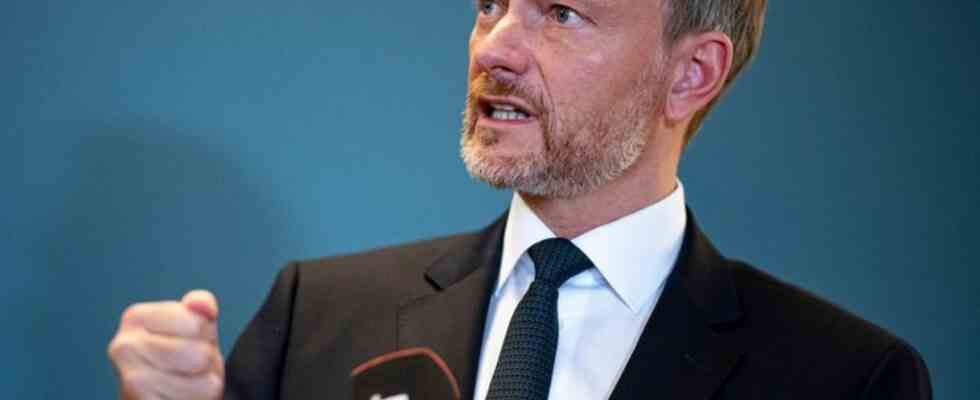debt brake
Interest burdens increase sharply: Lindner wants to prioritize projects
Christian Lindner (FDP), Federal Minister of Finance, insists that the federal government once again comply with the debt brake suspended in the corona pandemic. Photo: Fabian Sommer/dpa
© dpa-infocom GmbH
The debt brake was suspended during the corona pandemic. Federal Finance Minister Christian Lindner wants to comply with them again next year. But not everyone likes his course.
Federal Finance Minister Christian Lindner also sees the sharp rise in interest costs as a reason for his insistence on compliance with the debt brake in the coming year.
“Last year we paid a good four billion euros in interest,” said the FDP politician of the “Welt am Sonntag”. “It cannot be ruled out that it will be up to 30 billion euros next year.” The rising interest rates are “a signal for reversal. We are not only at a turning point in terms of security policy, but also an economic one.”
comply with the debt brake again
The finance minister is insisting that the federal government once again comply with the debt brake suspended in the corona pandemic. The debt brake enshrined in the Basic Law only allows for minimal borrowing. In recent years, it had been suspended because of the high loads caused by the corona pandemic and then by the war in Ukraine. The recently approved federal budget for 2022 provides for new borrowing of almost 139 billion euros. Lindner intends to present the draft budget for 2023 shortly.
“In 2023, I want to end the three years of financial policy emergency by returning to the debt brake,” said Lindner. The coalition agreement contains many projects that have not yet been specified. “Therefore, a priority must now be set,” emphasized the finance minister.
“End politics on credit”
“To combat inflation, the state must end politics on credit,” warned Lindner. “From now on, generating wealth must be more important than distributing it,” he added. Solid finances are the basis for everything else: “We simply can no longer afford misguided subsidies.”
Headwind to Lindner’s course came from the Greens. The budget spokesman for the parliamentary group, Sven-Christian Kindler, said on Saturday that austerity policies are the wrong instrument in times of crisis. “Unfortunately, in 2023 we will very likely still have to contend with the massive consequences of the Ukraine war, fossil fuel inflation and the corona pandemic. In times of need, one does not cut corners and suggest normalcy, but tackles the crises with determination. Financial policy in these times of crisis does not mean saying no all the time, but rather shaping it and solving the problems.” The social consequences of price increases would have to be cushioned. Poor people and families in particular needed additional support.

